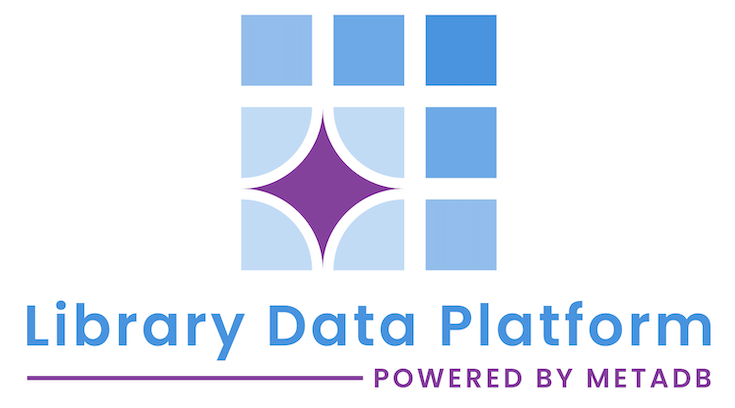Overview of the Project
The Library Data Platform (LDP) is the first scalable analytics platform designed specifically for libraries that is 100% community owned, open source, and free of vendor lock-in. Our mission is to bring simple yet state-of-the-art analytics capabilities to libraries worldwide.
LDP integrates data from multiple systems and library data domains through several key components:
- Metadb: Our core software engine that powers the analytics platform
- LDLite: A lightweight implementation for specific use cases
- ldpmarc: Specialized tooling for MARC record analytics
- Reporting App: Web UI (ui-ldp) and server-side modules (mod-ldp) for FOLIO/ReShare systems
Key features of the platform include:
- Cross-domain SQL analytics compatible with popular visualization tools
- Historical data storage for analyzing trends and gaining strategic insights
- Highly scalable architecture supporting multiple datasets and advanced analytics
- Automatic processing of schema changes from diverse data sources
LDP’s sustainability costs money. Please visit our Funders page to see which organizations are supporting LDP!
History
The Library Data Platform was envisioned and created by Nassib Nassar at Index Data, which has been the dominant funding and development organization for the project. Initially, LDP referred to both the project name and the core software.
As the project evolved, Metadb was introduced as the core software component, while the project itself continued to be known as LDP. This transition explains why some historical documentation may refer to LDP as software rather than as a project name.
The project is supported by the Open Library Foundation (OLF), an independent not-for-profit organization whose mission is to ensure the availability, accessibility, and sustainability of open source projects for libraries.
Community and Governance
LDP has a growing community of users, contributors, and committers who play vital roles in the ongoing development and success of the platform. The FOLIO Reporting Special Interest Group (SIG) represents a significant community of users and contributors to the project.
Our governance structure is designed to balance the leadership of Index Data with broader community input. It includes:
- Management Team: A Manager, Secretary, and Treasurer who oversee administrative aspects of the project. Our management team includes:
- Mike Gorrell, Index Data – Manager
- Simeon Warner, Cornell University – Treasurer
- Scott Perry, University of Chicago – Secretary
- Technical Oversight Committee (TOC): Responsible for technical decisions, architecture, and roadmap
- Mike Taylor, Index Data
- Jakub Skoczeń, Index Data
- Katherine Bargar, Five Colleges Consortium
- Community Participation: Multiple pathways for involvement at different levels
For complete details about how the project is organized and how you can participate, please review our Governance Model.
